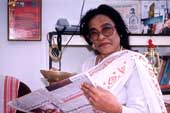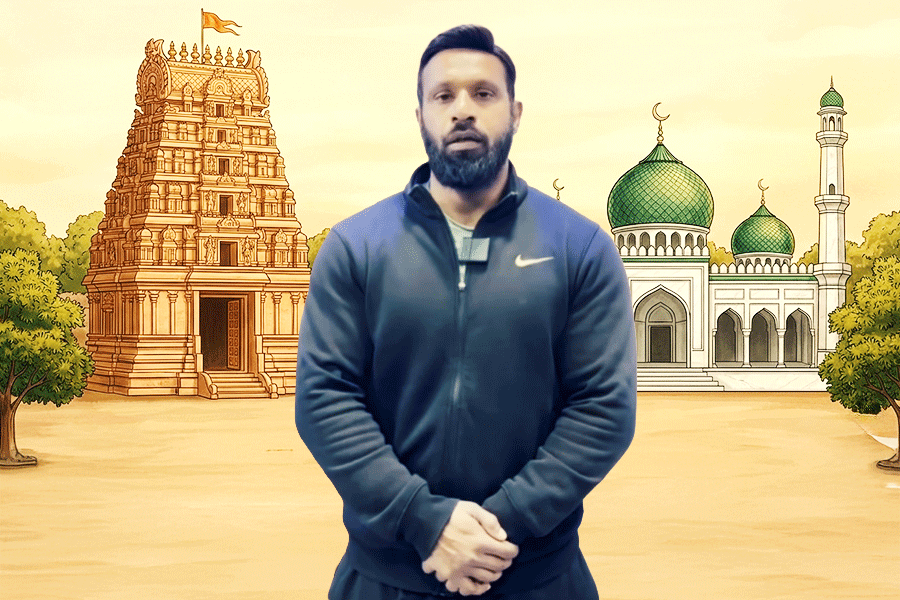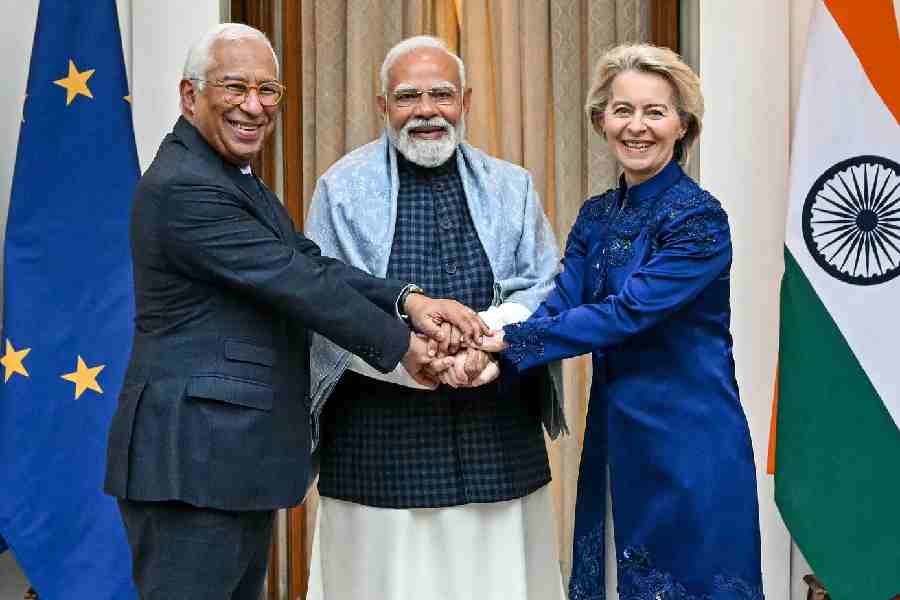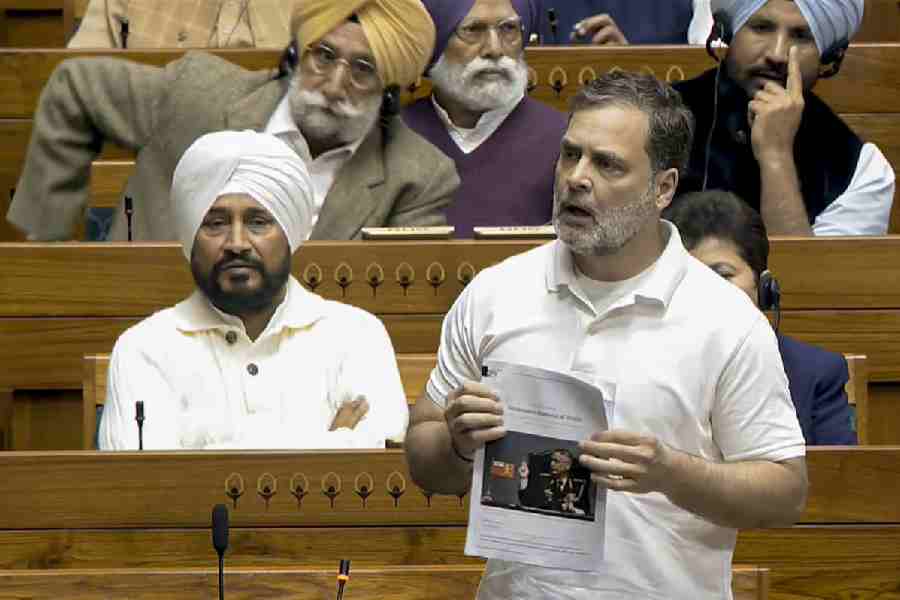 |
| A prolific writer and lyricist, Eli Ahmed’s birthday is celebrated every year as Geetor Din. Picture by S.H. Patgiri |
Eli Ahmed
This Sunday she will turn 70. In her mind, though, she’s turning 16. The prolific writer, columnist and lyricist, whose birthday is celebrated as Geetor Din (day of songs) every year, is still as chirpy as a girl in her teens.
“I am very sceptical about the term “birthdate” and “birthplace”. I always say that I was born in my mother’s womb. This was the place where I got the first stirrings of life. And I always add the nine months in my mother’s womb to my age,” she says.
Eli is known by different names to many. Nalinibala Devi called her Pokhila (butterfly), Nirmal Prabha Bordoloi calls her Beli (sun), filmmaker Brajen Barua called her Geet (song) and Bhupen Hazarika calls her Rong (colour). And friends call her Jui or fire.
Teeming with energy, Eli does have a charged aura around her. “I am not interested in cultivating an image, or breaking out of one. But I definitely want to do something different,” Eli confides during a chat at her Chandmari residence.
A glance at her living room unfolds a story waiting to be told. Every item in the house has a meaning and has been carefully chosen. “I even stitch and design my own clothes. I also know how to weave,” says the meticulously dressed lady.
Within minutes, the lady whips up a quick snack consisting of various kinds of pithas. “I love trying out exotic new dishes. I am well-known for my pitha-making skills,” she says with a smile. Pointing out to a grape branch, she says, “I can carve out something creative out of it instead of simply throwing it away.”
Her habit of storing tit-bits and happy little thoughts in a corner of her mind has evolved into a romance of riveting episodes, which she pours out in her columns in the various local dailies. “I write about my experiences, both bitter and sweet,” she says.
A popular columnist, her various columns in the local dailies have captivating titles — Ramanthan (flashback), Ujuti (to trip over something), Hasoti (little bundle in a hanky), Leseri (branch of experiences of various hues) and Bijuti (fault).
Music lies in her soul. From an early age she used to recite self-composed poems and children’s rhymes. In 1967, she had formed a children’s cultural group named Rong Chora and performed cultural programmes in different parts of Assam.
A state literary pensioner, her first musical feature Bhagyor Chokory Chure, was performed in the Nazira session of the Asam Sahitya Sabha in 1962.
She made her mark as a lyricist with Dwipen Barua’s famous song Ga Ga Aji Gai Jaa Ei Geetoke Ga in Brajen Barua’s famous film Dr Bezbaruah. She has written lyrics for popular films like Baruar Sansar, Sadari, Sonmaina, Pratidin, Devata. She also wrote lyrics for the television serials Gadhuli, Sahual and Apabad.
Her musical feature Ajaner Sure-Sure, based on the theme of national integration, which was broadcast on All India Radio, was popular among listeners.
She is also a trendsetter. She is the editor and publisher of Orani, the only women’s magazine in the Northeast since 1970. She had also organised the first women’s drama group in Assam in 1967.
She also figures in the Who’s Who of Indian Writers, brought out in 1996 under the series on Indo-European writers. She was also awarded the national literary prize on adult education for her book Bonphool in 1976.
A life member of the Asam Sahitya Sabha, she has written more than 50 songs and more than 50 books. Her artistry finds expression on various covers of her books.
She has been the scriptwriter for several Assamese films like Dhrubatora, Bordoichila, Bonphool, Janambhumi. She has scripted five documentary films — Old Monuments of Ahom Age, Child Psychology, Mahasheeta, Syed Abdul Malik and The Milk.
She was the storywriter of films like Baruar Sansar, Jakhini, Bonphool, Mukahgni, Janambhumi. She was the scriptwriter, art director and costume designer for many of these films.
She has to her credit several successful dramas — Bhahkhari, Kathatunu Ki, Sakina Jethair Moni, Kakadeutar Sadhu, Natusola, Ami Bhinay Kara Nai. She also several successful collections has to her credit.
Ankur, a short story collection, Moniram Dewan, published by Asam Sahitya Sabha, Rongmonor Mon, Moi Ketia Aita Hom, published by Asom Prakashan Parishad, Asom Birangana published by the department of information and broadcasting, government of India, are a few of her works.
Born in an aristocratic family in Nazira, she traces her roots to one of the five Parsi families referred to in Medini Mohan Choudhury’s Luit, Barak and Islam. Having lost her mother at a young age and later her father Abdur Rashid, who was a surgeon, she was jolted to the harsh realities of life early in life.
She came to Guwahati to appear for an interview at the Balak Sewika Prashikshan Kendra under the department of social welfare in 1965. “It was an act of fate. I have been staying here since then. I wanted to stay away from home because of my unpleasant experiences with my stepmother, who was unkind to me,” she says.
Since then she has been pursuing her interests — writing, music, films and drama, which provide her with much-needed succour. Eli’s latest book, Collection of Columns, 2001 to 2003, was released recently by Kamal Kumari Baruah, president of Asam Pradeshik Mahila Samiti. She feels happy that her well-wishers remember her on her birthday. This year, the day will be celebrated by Shatabdi Prakashan, headed by Pabitra Jiban Baruah. She says, “I also offer them an insignia in return to express my gratitude.”
For her part, Eli refuses to brood over the things that did not work out for her. She muses, a tad philosophically, “Tomorrow is another day and I look forward to it because yesterday is history.”










